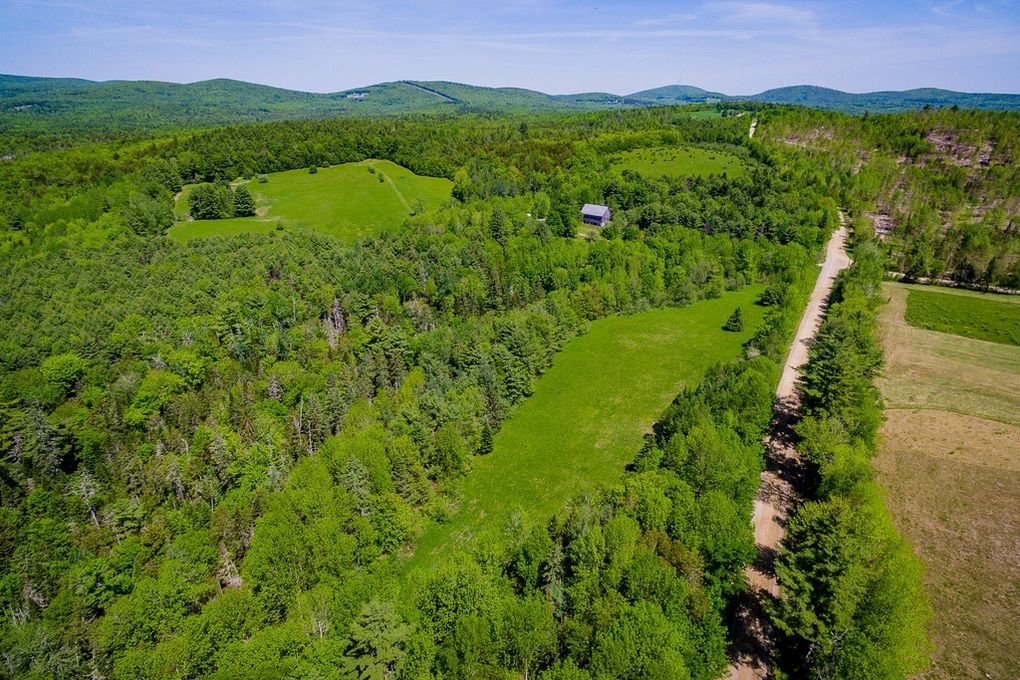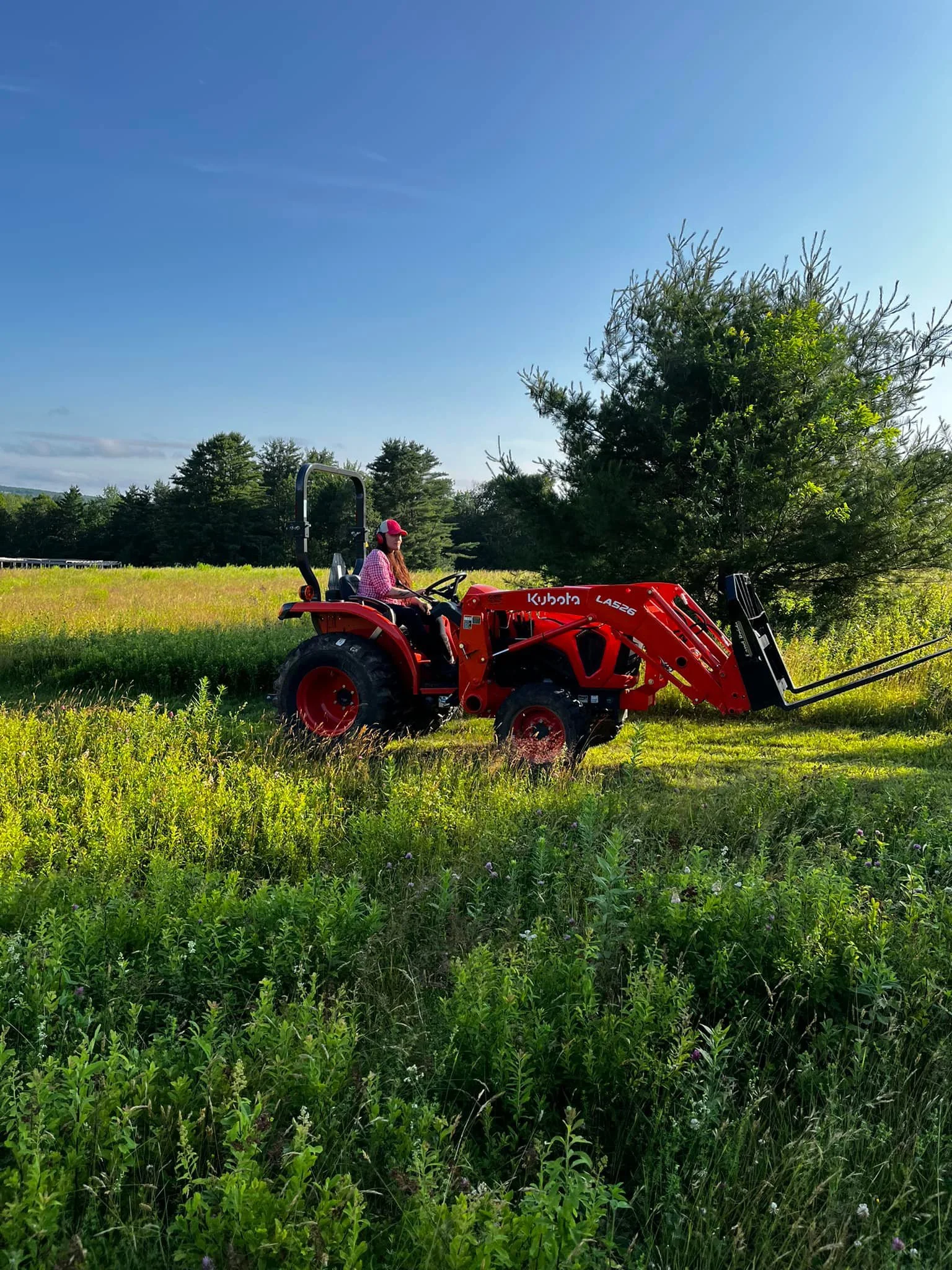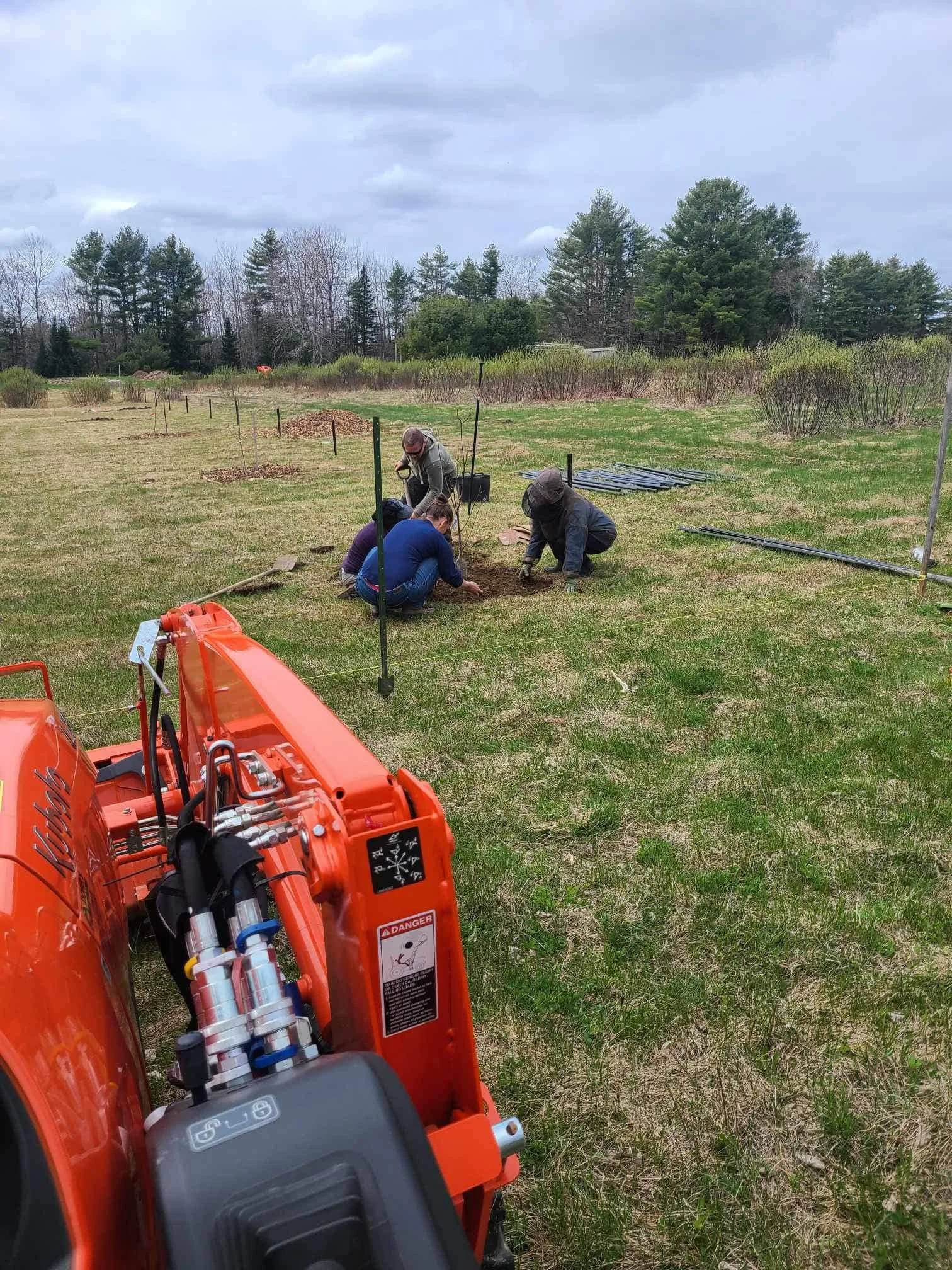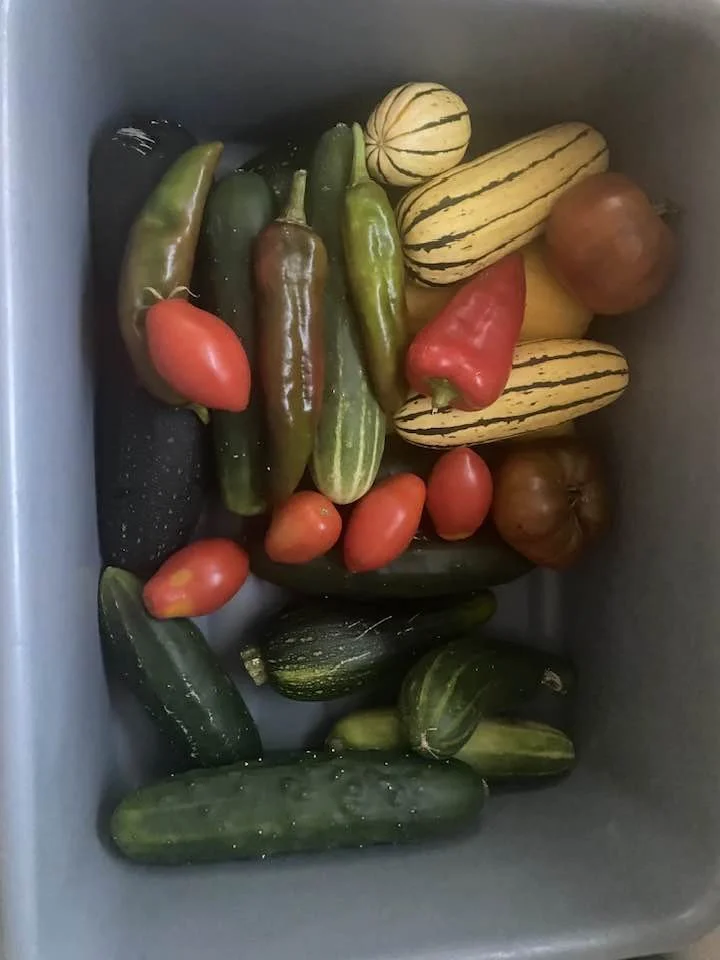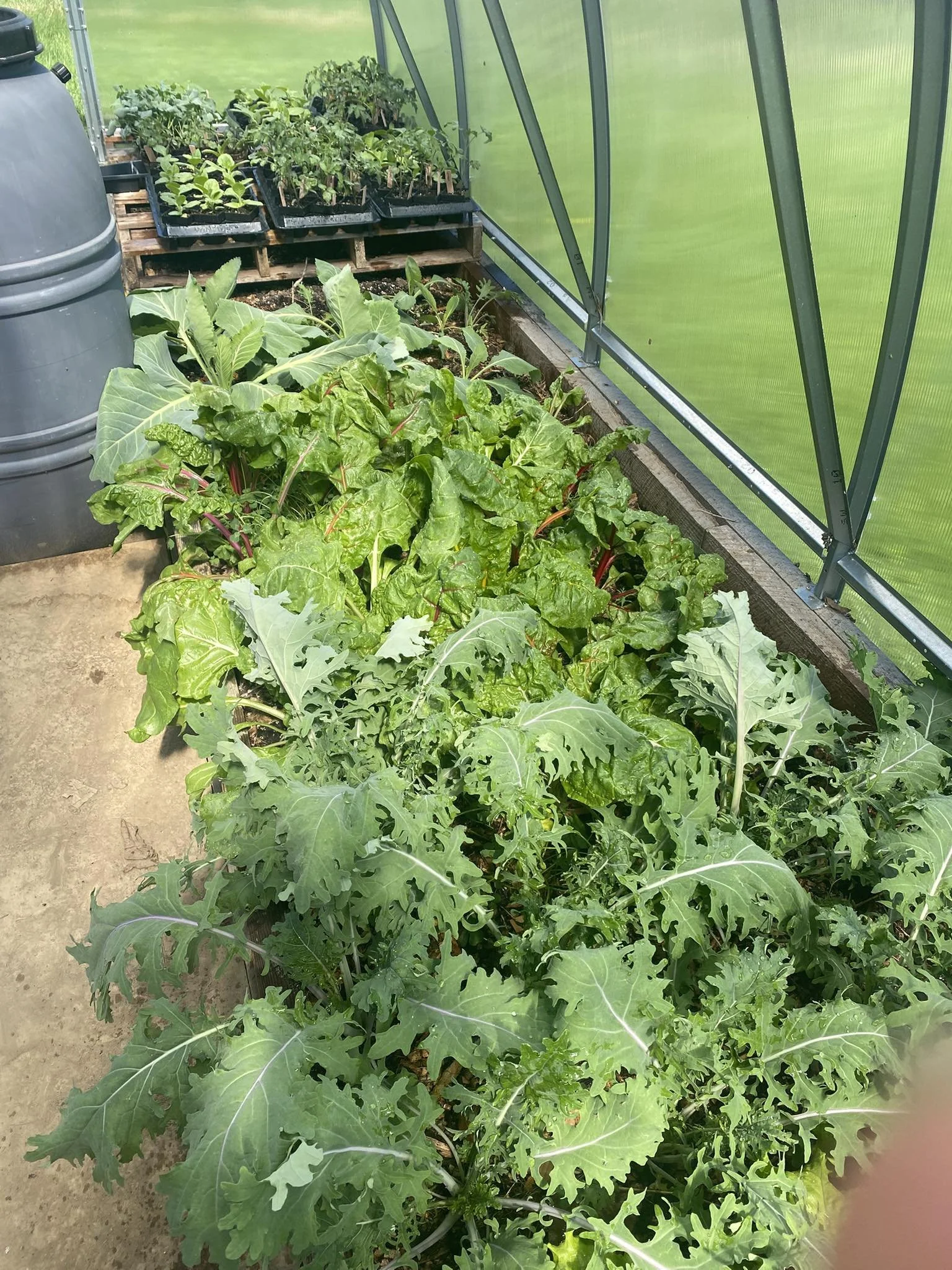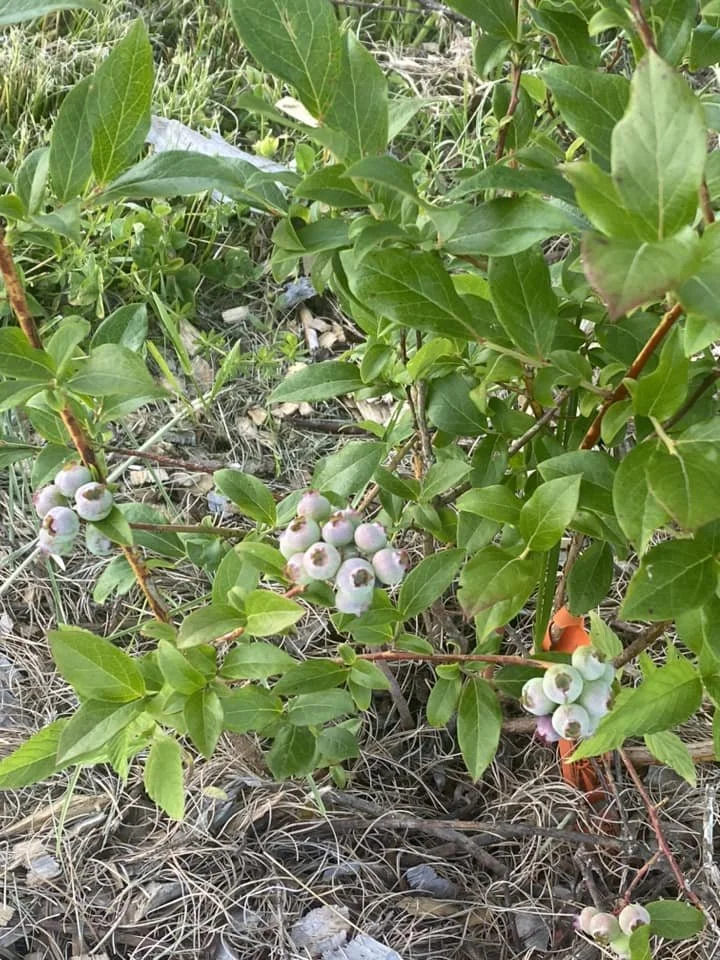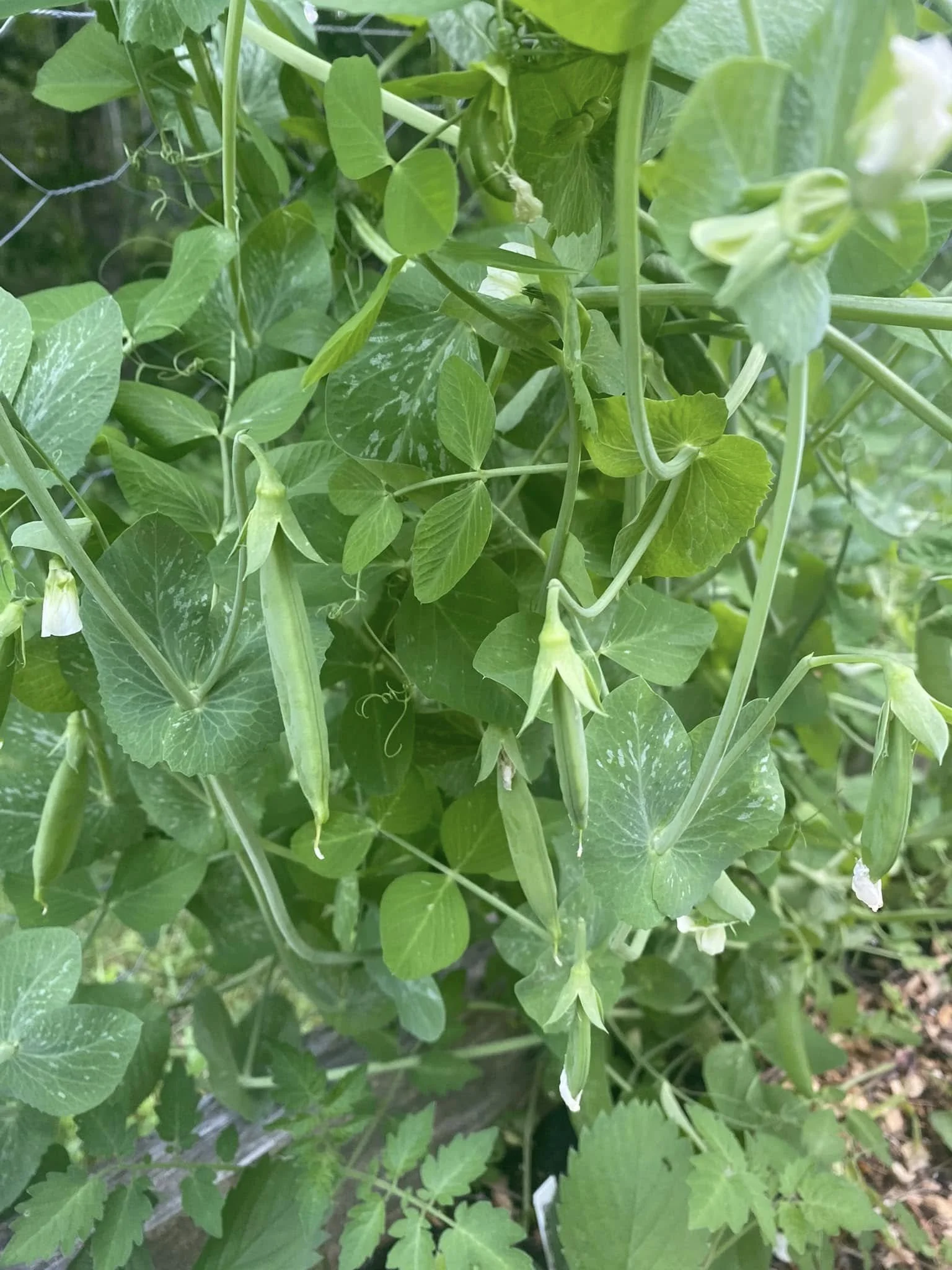Farming at Wičuhkemtultine
Over the last four years, we have been slowly and consciously developing our land-based programs.
To date, we have planted 80 high bush blueberry, 38 elderberry bushes and 75 elderberry root stock, dozens of raspberry and blackberry bushes, 22 fruit trees, 200 strawberry plants, and seven black walnut, four hazelnut, and four American chestnut trees. We have three important ceremonial plants growing on the land, tobacco, red willow, and cedar, and we plan to begin introducing sweetgrass in the next year.
We have a beautiful 32 foot greenhouse that has been providing greens for 9-10 months of the year, and we’ve constructed a workshop and maintenance garage to house our farm equipment and provide a safe, year-round workspace for our outdoor staff. Thanks to a grant from Hannaford, we were able to buy a new tractor and develop an efficient water catchment system across our campus. This year, we are working to install a comprehensive drip irrigation system in all of our growing areas. This has allowed us to significantly expand our growing areas, which will dramatically increase our food production.
This spring, our 15,000 square foot vegetable garden is ready for plants and the plants are ready to go into the ground! We have multiple varieties of lettuce, kale, spinach, herbs, several varieties of peppers and tomatoes, cucumbers, radishes, many types of squash, corn, beans, peas, and more.
We will be sharing these foods with participants of our programs, local food pantries, tribal food pantries, and elder meal sites. Since many of our plants require several growing seasons before they produce fruit, our fruit output is expected to be limited for a couple of years. However, our vegetable production will be increasing 10 fold beginning in 2025. We look forward to sharing greater contributions of food to our local area as our berries, fruit, and nut trees mature.
Our farming program is based on our traditional understanding of sovereignty. In our language, the term for sovereignty translates to: I own myself. That self-ownership includes the inherent right to self-determination. At LPF, we believe that Mother Earth has that same right to self-determination that we have, this includes the right to exist without bearing the weight of human expectations for productivity. Therefore, our farming program honors the sovereignty of the land.
The Land Peace Foundation ‘Sovereignty of the Land’ guidelines aim to express how caring for the land at Wičuhkemtultine is integral to the preservation of the Indigenous way of life. We approach farming as a kinship practice, a respectful and mutual relationship between humans, land , plants, soil, other animals, water, sky, and all life.
We utilize agricultural approaches that fall under labels such as organic, no-till, regenerative or permaculture, but our engagement with the land is rooted in a spiritual understanding of our kinship with the land. In this kinship relationship, we respect the inherent sovereignty of the land, with its own right of self-expression and right to experience life to the fullest. The sovereignty of the land, and the food sovereignty that it offers to our communities, is essential to our Indigenous sovereignty as Penobscot and Wabanaki Peoples.

